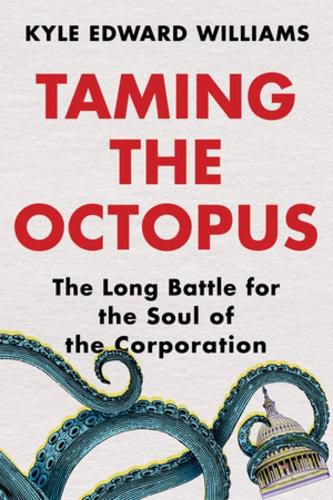Readings Newsletter
Become a Readings Member to make your shopping experience even easier.
Sign in or sign up for free!
You’re not far away from qualifying for FREE standard shipping within Australia
You’ve qualified for FREE standard shipping within Australia
The cart is loading…






Recent controversies around ESG investing and "woke" capital evoke an old idea: the Progressive-era vision of a socially responsible corporation. By midcentury, in fact, the notion that business leaders could benefit society had become a consensus view. But as Kyle Edward Williams's brilliant history shows, New Deal liberalism realized a kind of big business supervision narrowly focused on the financial interests of shareholders. This inadvertently laid the groundwork for a set of fringe views to become orthodoxy: that market forces should rule every facet of society. Along the way American capitalism itself was reshaped, stripping businesses to their profit-making core. As a rising tide of activists pushed corporations to account for societal harms from napalm to seatbelts to inequitable hiring, a new idea emerged: that managers could maximize value for society while still turning a maximal profit. This elusive ideal, "stakeholder capitalism," still dominates our headlines today. Williams's necessary history equips us to reconsider democracy's tangled relationship with capitalism.
$9.00 standard shipping within Australia
FREE standard shipping within Australia for orders over $100.00
Express & International shipping calculated at checkout
Recent controversies around ESG investing and "woke" capital evoke an old idea: the Progressive-era vision of a socially responsible corporation. By midcentury, in fact, the notion that business leaders could benefit society had become a consensus view. But as Kyle Edward Williams's brilliant history shows, New Deal liberalism realized a kind of big business supervision narrowly focused on the financial interests of shareholders. This inadvertently laid the groundwork for a set of fringe views to become orthodoxy: that market forces should rule every facet of society. Along the way American capitalism itself was reshaped, stripping businesses to their profit-making core. As a rising tide of activists pushed corporations to account for societal harms from napalm to seatbelts to inequitable hiring, a new idea emerged: that managers could maximize value for society while still turning a maximal profit. This elusive ideal, "stakeholder capitalism," still dominates our headlines today. Williams's necessary history equips us to reconsider democracy's tangled relationship with capitalism.